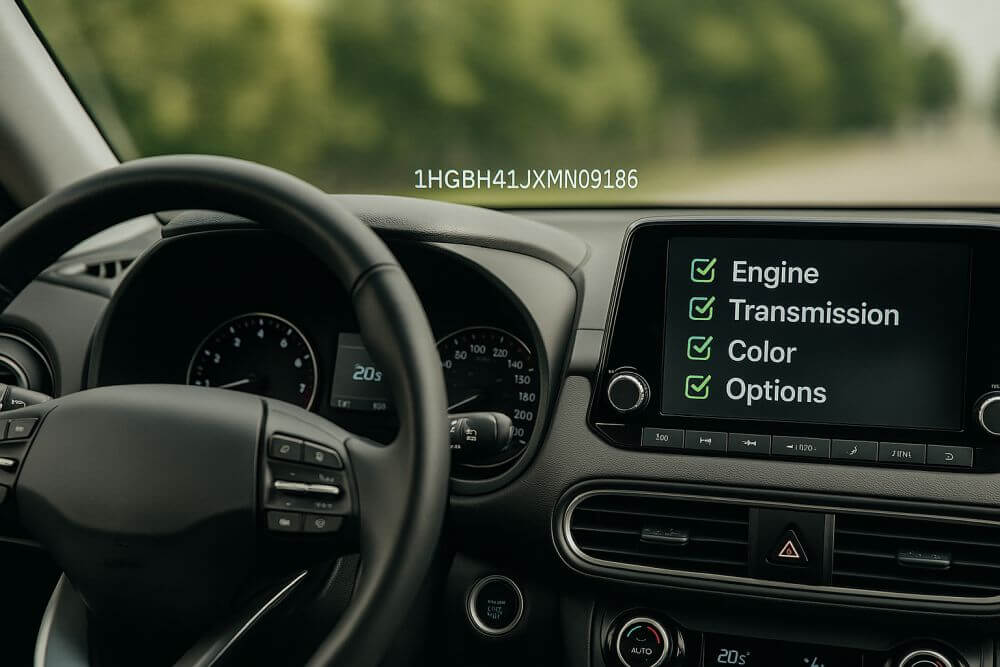When purchasing a used vehicle, one of the key concerns for buyers is ensuring the car’s odometer reading is accurate. Odometer fraud, the illegal act of rolling back mileage readings, can lead to significant financial losses and safety risks. This deceptive practice can affect the value of a vehicle, inflate its price, and mask hidden mechanical issues. As a prospective buyer, conducting thorough research is crucial, and one effective method is using a free VIN check to uncover potential odometer fraud. Understanding how to spot odometer fraud with a VIN check can save you from costly mistakes and ensure you’re making a wise investment.

Understanding Odometer Fraud
Odometer fraud occurs when a vehicle’s mileage is altered to reflect a lower number than the actual distance traveled. This unethical practice is designed to increase the car’s market value and make it more appealing to buyers. Unfortunately, odometer fraud is not always easy to detect, especially for those unfamiliar with vehicle inspection processes.
How a VIN Check Can Help Identify Odometer Fraud
A Vehicle Identification Number (VIN) is a unique code assigned to every motor vehicle. By conducting a VIN check, you can access a wealth of information about the car’s history, including title records, accident reports, and previous odometer readings. Here’s how a VIN check can help spot odometer fraud:
- Access to Historical Data: A VIN check provides access to past maintenance records and inspections, which often include odometer readings. Discrepancies in these records can indicate tampering.
- Title History: Reviewing the title history can reveal inconsistencies in mileage reports submitted during ownership transfers.
- Consistent Mileage Records: A VIN check can reveal a pattern of consistent mileage increases. A sudden drop or irregular increase in mileage can be a red flag.
Steps to Spot Odometer Fraud with a VIN Check
To effectively use a VIN check for identifying odometer fraud, follow these steps:
- Obtain the VIN: The VIN is usually found on the dashboard, driver’s side door, or vehicle documents. Ensure you have the correct 17-character code.
- Conduct a VIN Check: Use a reputable service like VinCheckPro to obtain a detailed report. This will include the vehicle’s history, previous odometer readings, and other essential data.
- Analyze the Report: Look for inconsistencies in mileage records. Pay attention to any significant drops or irregularities in the readings.
- Consider Additional Signs: While reviewing the VIN report, consider other mileage fraud signs such as unusual wear and tear, new components that seem out of place for the recorded mileage, and mismatched documentation.
VIN Decoder Connection
Decoding a VIN involves extracting key information about a vehicle, such as the make, model, year, and manufacturing details. While a VIN decoder primarily provides specifications, it is crucial in initiating a comprehensive vehicle history check. By decoding the VIN, you set the stage for accessing detailed reports that can reveal odometer discrepancies. Thus, using a VIN decoder not only helps in understanding vehicle specs but also plays a vital role in scam prevention.
Take Action: Protect Yourself from Odometer Fraud
In the world of used cars, knowledge is power. Whether you’re buying or selling, understanding how to spot odometer fraud with a VIN check is invaluable. Equip yourself with the necessary tools and take advantage of VinCheckPro’s free VIN decoder to access comprehensive vehicle history reports. Safeguard your investment and ensure peace of mind by verifying the authenticity of a vehicle’s odometer reading.
Frequently Asked Questions
What is a VIN, and why is it important?
A Vehicle Identification Number (VIN) is a unique 17-character code that identifies a specific vehicle. It is crucial for tracking the car’s history and specifications, making it an essential tool for spotting odometer fraud.
How can I tell if a vehicle has been subjected to odometer fraud?
Signs of odometer fraud include inconsistencies in mileage records, unusual wear and tear for the reported mileage, and discrepancies between the vehicle’s condition and its documented history. A thorough VIN check can reveal these signs.
Are there legal repercussions for odometer fraud?
Yes, odometer fraud is illegal and can result in severe penalties, including fines and imprisonment, for those who alter mileage readings. Victims of odometer fraud may also pursue legal action against the perpetrators.
How reliable are VIN checks in detecting odometer fraud?
VIN checks are highly reliable as they provide a comprehensive view of the vehicle’s history, including past odometer readings. However, it’s essential to use reputable services that offer detailed and accurate reports.
Can I perform a VIN check on my own vehicle?
Absolutely. Performing a VIN check on your own vehicle can help verify its history and ensure that all records align with your ownership and maintenance experiences. It’s a proactive step in maintaining your car’s integrity and value.


